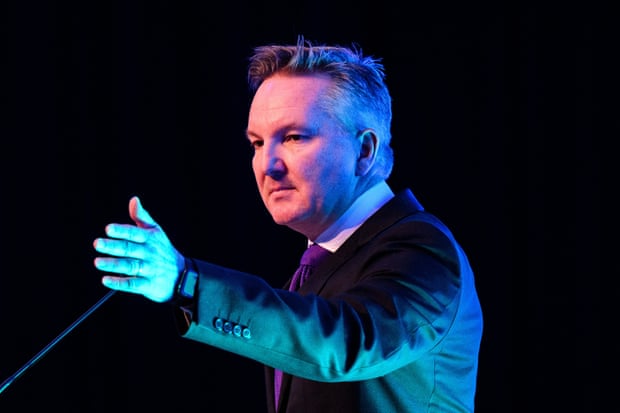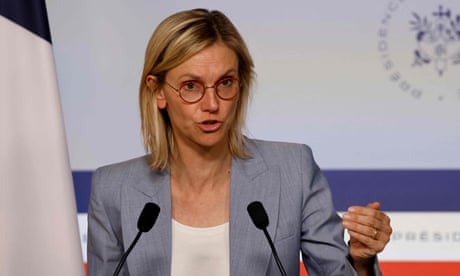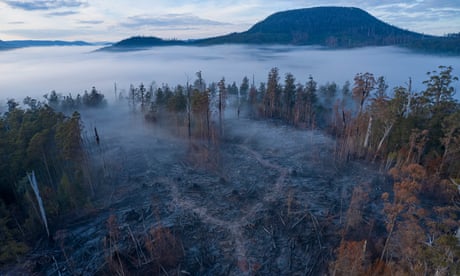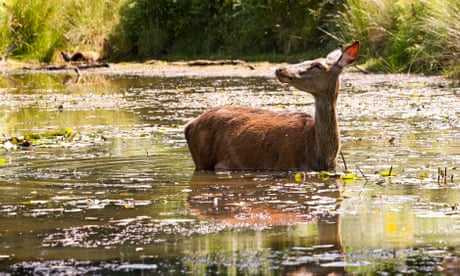Extract from The Guardian
Change to ensure future emissions reduction targets could only be increased follows talks with crossbench and Greens.

Tue 26 Jul 2022 03.30 AEST
Last modified on Tue 26 Jul 2022 04.17 AESTThe adjustments ahead of the introduction of the bill on Wednesday follow negotiations with the crossbench and the Greens and come as the latest Guardian Essential poll shows 50% of respondents want a bill reflecting Labor’s specific election commitments passed by the new parliament to address the climate crisis.
The poll suggests 25% of respondents want the Greens or the teal independents to hold out for more ambitious commitments while 25% of voters surveyed don’t want any bill passed, because they oppose further action.
Of the cohort wanting further action, 44% think Labor’s 2030 target of a 43% cut in emissions is sufficient, 40% think more action is required and 16% are unsure.
The new legislation will enshrine Labor’s election commitment to cut emissions by 43% by 2030 and reach net zero by 2050. The climate change minister, Chris Bowen, says the bill will make clear all future national contributions submitted as part of the Paris agreement must be a progression beyond current commitments.
The bill will also enshrine the new targets in the objectives and functions of a range of agencies, including the Clean Energy Finance Corporation, the Australian Renewable Energy Agency, Export Finance Australia, Infrastructure Australia, and the Northern Australia Infrastructure Facility.
Bowen says the bill will confirm the Climate Change Authority will provide public advice on progress towards achieving the target, on relevant international developments, and the effectiveness of the Albanese government’s policies. If the minister doesn’t agree with the expert advice he will have to table a response outlining the differences.
The government is hopeful the adjustments will secure parliamentary support from the teal independents, although Bowen has signalled the government could accept further amendments during debate if they are consistent with Labor’s electoral mandate.
Labor has the numbers to pass the bill in the lower house where it will be introduced. Debate in that chamber is likely to span the parliamentary fortnight.
The government will need the support of the Greens and independent David Pocock in the Senate to make the proposal law.
The Greens leader, Adam Bandt, is continuing discussions with Bowen. On Monday, he said his preference was “to improve and pass the climate legislation through this parliament”.
In response to the strengthening of the legislation, Bandt said: “The Greens are pleased the government has listened to some of our concerns about the bill, and we are continuing negotiations about remaining issues, including the opening of new coal and gas mines.”
The Greens are critical of the 43% target and want a ratchet mechanism in the legislation to ensure increased ambition. The party also wants a moratorium on new fossil fuel developments.
Asked on Monday whether one way to achieve that objective over time could be a so-called “climate trigger” – a process ensuring that global heating was a factor in approving major developments – Bandt said Labor needed to introduce a climate trigger during a revamp of environmental laws.
“For a number of years the Greens have pushed for the climate impact of new projects to be assessed,” the leader said. “It is woeful that in Australia new projects can go ahead without a minister having to consider the impact on the climate. That has to change.”
Labor is already facing internal pressure to make that commitment and has room to move on a climate trigger, given it gave no undertakings one way or the other prior to the election. But it would be controversial and spark fierce pushback from the fossil fuel industry and some elements of the trade union movement.
The 47th parliament opens on Tuesday but the Labor caucus met on Monday to approve the outline of the climate bill, while the Liberal and National parties held separate post-election strategy sessions to process the electoral rout on 21 May.
The opposition leader, Peter Dutton, has ruled out supporting Labor’s legislation enshrining the emissions reduction targets. There was some discussion during Monday’s sessions about the role climate played in the election result, but no specific conversation about Labor’s bill.
Two Liberals have left open the option of crossing the floor to support Labor’s legislation: Bridget Archer in the lower house and Andrew Bragg in the Senate.
The government will pursue several bills during the opening parliamentary fortnight. On Thursday, the workplace relations minister, Tony Burke, will introduce Labor’s bill to create a right to paid family and domestic violence leave.
Details of the bill, released on Tuesday, indicate that 11 million employees, including casuals, will receive the entitlement to 10 days of paid leave.
The scheme will start on 1 February for most employees. Small businesses will have an extra six months to adjust, meaning employees of those businesses will be eligible from 1 August 2023.
“Casual workers are not spared from family and domestic violence. In fact, women who are experiencing family and domestic violence are more likely to be employed in casual work,” Burke said. “We cannot leave them behind. That’s why this has to be a universal entitlement.”
One woman dies every 10 days in Australia at the hands of their former or current partner.
Natalie Lang, the Australian Services Union NSW/ACT secretary, said the campaign for family and domestic violence leave was started in 2015 by frontline workers who could see “the difference it made to a woman’s journey” escaping violence.
“Your right to safety can’t be dependent on who your employer is – this has to be an entitlement that every single worker has access to,” Lang said.



No comments:
Post a Comment